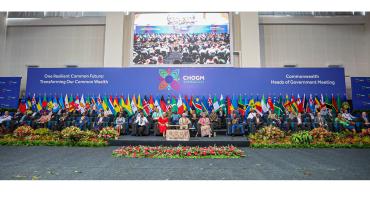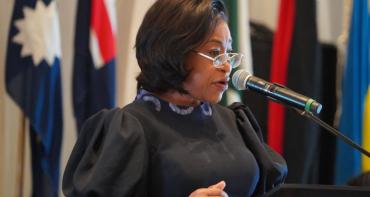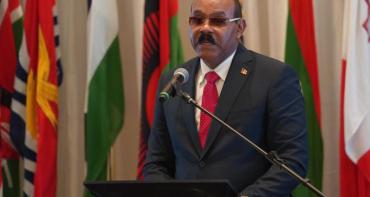Visas
Nationals of the African Union, Commonwealth and Francophonie member states can get a 30-day visa on arrival. No payment is required.
Nationals of all other countries can receive visas on arrival at Kigali International Airport and all land borders. The following costs apply.
- A single entry tourist visa costs US$50 (exclusions apply for select countries) and is valid for 30 days.
- A single entry conference visa costs US$30 and is valid for 30 days.
- A multiple entry business visa costs US$50 and is valid for one year.
- The East African Tourist Visa (EATV) covers Rwanda, Kenya and Uganda, costs US $100 and is valid for 90 days.
CHOGM 2022 delegates are responsible for ensuring they have the correct visa for travel. The Commonwealth Secretariat takes no responsibility for unsuccessful visa requests.
Kindly have your valid passport (not less than 6 months to expiry), confirmation of registration and accommodation booking ready on arrival. View the Rwanda Directorate General of Immigration and Emigration for more information.
Read the Government of Rwanda visa regime and find further information about visas here.
Accommodation
We urge delegates to book their accommodation for their time at CHOGM as soon as possible. A range of accommodation options are still available in and around Kigali centre which is a short drive away from Kigali Convention Centre.
Delegates are encouraged to book directly with accommodation providers or through third party booking websites.
You can find a list of allocated hotels for CHOGM media here.
Transport
Airlines servicing Kigali International Airport are: RwandAir, Kenya Airways, Ethiopian Airlines, Brussels Airlines, KLM, Qatar Airways and Turkish Airlines.
Rwanda has a well-surfaced road network linking the major towns, and the most convenient way to travel the country is by car. Smaller roads are frequently unsurfaced with varying conditions, especially during rainy season. Tour operators can arrange a vehicle with driver, or a number of agencies rent out cars and 4x4s. Taxis operate in Kigali and larger towns. Travel insurance may not cover motorbike taxis, which are also common.
There are no rail services and the most popular form of public transport is shared minibuses. In Kigali, buses operate a smart card system called Tap&Go.
Helicopter transfers within Rwanda are available through Akagera Aviation.
For more information about getting to the venue and accessibility please contact Kigali Convention Centre to discuss your requirements.
Internet connectivity
Rwanda has an excellent mobile phone network covering almost the entire country, and international calls can be made easily.
The country is among the top three African countries in terms of internet connectivity, with an ever-growing fibre optic network.
Vaccinations
The greatest health risks in Rwanda are accidents and malaria. Much of Rwanda lies at too high an elevation for malaria to be a major concern, but the disease is present and prophylactic drugs are recommended. Travellers should seek professional medical advice on taking anti-malarial medicines and take precautions to avoid mosquito bites, especially between dawn and dusk.
Travellers should ensure they are up to date with vaccinations including COVID-19, following the advice of their local healthcare provider. A certificate of yellow-fever vaccination is required.
It is advisable not to drink tap water. Bottled mineral water can be bought in all towns – make sure the seal is intact.
Currency
The Rwandan franc (Rfr) is the principal currency, although US dollars are widely accepted.
Expect to pay for local services in cash, in Rwandan francs. The greater the amount, the more likely US dollars or other hard currencies are preferred, such as gorilla tracking and upmarket hotels.
A growing number of places accept credit and debit cards, with Visa being more widely accepted than Mastercard. It’s best to check when making a booking.
ATMs can be found in Kigali and nearly all major cities.
Cash can be exchanged at banks and private forex bureaux (bureau de change). Both are closed on Sundays and public holidays.
It may be impossible to exchange traveller’s cheques away from the capital. Western Union facilities are common.
Tipping is discretionary and appreciated. Cash is usually preferred. As a rough guide, tip professional guides and drivers US $10 per day, trekking porters US $2.
Plastic ban
Rwanda strives to protect, safeguard and promote the environment. Please refrain from bringing plastic bags to Rwanda. Banned by law since 2008, any plastic bags in your luggage will be confiscated at the airport or other point of entry.
Provisional Agenda
We understand that planning your schedule is important. The agenda will be added to the website as soon as it becomes available.



